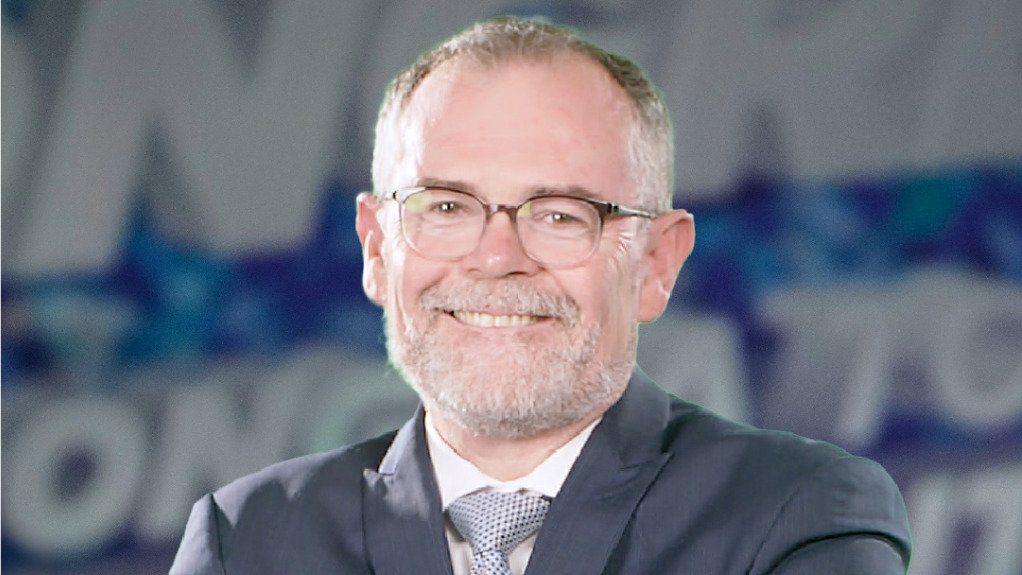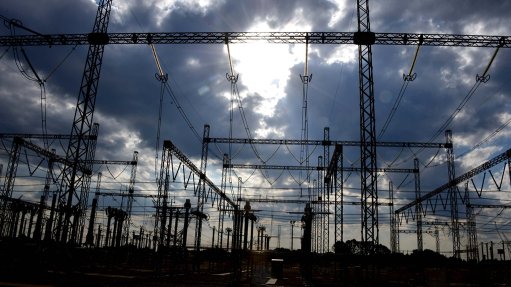DFFE welcomes COP29 as step in right direction, 350.org says it fell short
Forestry, Fisheries and the Environment Minister Dr Dion George has welcomed the outcomes of the UN Framework Convention on Climate Change's (UNFCCC's) twenty-ninth Conference of the Parties (COP29) that concluded on November 24 in Baku, Azerbaijan, as having “inspired hope that we will be able to do more in future”.
The parties adopted the Baku Climate Unity Pact consisting of a New Collective Quantified Goal (NCQG) on climate finance, Global Goal on Adaptation and Sharm el-Sheikh Mitigation Ambition and Implementation Work Programme, as well as the key decisions on implementing the Paris Agreement’s Article 6.2 and 6.4.
The adoption of Article 6.2 and 6.4 decision on carbon markets will allow South Africa and other developing economy countries to initiate new carbon market projects, which will facilitate investments in green technologies and economic opportunities, he highlighted.
“For South Africa, the decisions that were adopted are a win. While we understand the frustration expressed by some parties, the outcomes are a significant step in the right direction, as it is more than what we had going into the negotiations and we can now build on this, especially given that South Africa will be the next President of the G20,” he said.
Developed economy countries committed to mobilising at least $300-billion a year by 2035 for developing economy countries for climate action.
The agreement also provided signals to private-sector and multilateral development banks to scale up financing to developing economy countries to $1.3-trillion a year by 2035, noted George.
“The [new finance goal] decision emphasises the importance of reforming the multilateral financial architecture to make it fit for purpose to address the climate crisis.
“It also calls for scaled-up support for climate action from multilateral financial institutions through grant-based and concessional financing,” said Department of Forestry, Fisheries and the Environment (DFFE) chief negotiator and climate change and air quality management deputy director-general Maesela Kekana.
The decision also emphasised the need to reduce barriers and address disenablers faced by developing economy countries, such as limited fiscal space, high levels of debts and high cost of capital, to prevent such barriers and disenablers from becoming conditionalities for access by developing economy countries to climate finance, he added.
On adaptation, parties are on track to finalise the work on the adaptation indicators to track progress in the implementation of the global goal on adaptation, at COP30 in Brazil in 2025.
“The conference also welcomed the rapid institutionalisation of the Loss and Damage Fund. Under the leadership of South Africa and France, the Fund is expected to disburse funds to climate-vulnerable communities in mid-2025,” George said.
Additionally, he welcomed the decision on the Mitigation Work Programme, which will provide further opportunities to share experiences and match investment needs with investors, he said.
However, environmental organisation 350.org Africa regional director Landry Ninteretse said COP29 fell short of what was urgently needed for African communities grappling with the impacts of the climate crisis.
Developed countries committed “at least $300-billion per year” from a variety of sources, including public and private.
However, this figure risks deepening the debt burden for vulnerable nations who are already paying the price of the climate crisis.
High-income countries, which are responsible for the bulk of historical emissions, owe trillions to nations shouldering the costs.
The lack of decisive action and the required finance for adaptation and energy transition was a stark betrayal of those who had contributed the least to global warming but suffered the most from its consequences, he said.
“Africa demands a systemic overhaul of global climate finance to be just, fair, urgent and responding to the scale of appropriate adaptation and mitigation needs for our communities.
“Rich nations must deliver the financing that African communities need. The solutions are available and present in Africa and the renewable-energy revolution is underway,” he said.
Rich countries had failed to honour their responsibilities and shown up with rigid unwillingness to meet this moment with the ambition required to address the climate crisis, said 350.org head of public engagement Namrata Chowdhary.
“Inequity has again driven a hard bargain that the vulnerable have no choice but to accept,” she said.
This COP29 deal failed to meet the ambition needed, but, as seen over the past two weeks in the halls of the COP venue and the many actions held across the world, hope and ambition are alive and well in the climate movement.
“We are already looking ahead, and preparing to build new momentum in the global movement for climate justice, with a wave of campaigns and mobilisations focused on real solutions to the climate crisis.”
The lack of financial backing from rich nations continues to obstruct meaningful progress on adaptation and mitigation, particularly in regions hardest hit by climate impacts.
In the wake of COP29’s failure to deliver, all eyes had turned to Brazil as the next critical arena in which to fight for climate justice, human rights and robust international cooperation, Chowdhary said.
The conclusion of COP29 took place at the end of a record-breaking year for climate impacts, with rising temperatures, floods, hurricanes, droughts, and wildfires destroying communities and ecosystems worldwide.
“Every fraction of a degree matters, and we cannot delay action on climate any longer if we are to keep the hope of limiting the global temperature increase to 1.5 °C alive.
“In the face of governments failing us, social movements are showing leadership and driving forward renewable-energy solutions that are locally led and put communities first,” she said.
Article Enquiry
Email Article
Save Article
Feedback
To advertise email advertising@creamermedia.co.za or click here
Press Office
Announcements
What's On
Subscribe to improve your user experience...
Option 1 (equivalent of R125 a month):
Receive a weekly copy of Creamer Media's Engineering News & Mining Weekly magazine
(print copy for those in South Africa and e-magazine for those outside of South Africa)
Receive daily email newsletters
Access to full search results
Access archive of magazine back copies
Access to Projects in Progress
Access to ONE Research Report of your choice in PDF format
Option 2 (equivalent of R375 a month):
All benefits from Option 1
PLUS
Access to Creamer Media's Research Channel Africa for ALL Research Reports, in PDF format, on various industrial and mining sectors
including Electricity; Water; Energy Transition; Hydrogen; Roads, Rail and Ports; Coal; Gold; Platinum; Battery Metals; etc.
Already a subscriber?
Forgotten your password?
Receive weekly copy of Creamer Media's Engineering News & Mining Weekly magazine (print copy for those in South Africa and e-magazine for those outside of South Africa)
➕
Recieve daily email newsletters
➕
Access to full search results
➕
Access archive of magazine back copies
➕
Access to Projects in Progress
➕
Access to ONE Research Report of your choice in PDF format
RESEARCH CHANNEL AFRICA
R4500 (equivalent of R375 a month)
SUBSCRIBEAll benefits from Option 1
➕
Access to Creamer Media's Research Channel Africa for ALL Research Reports on various industrial and mining sectors, in PDF format, including on:
Electricity
➕
Water
➕
Energy Transition
➕
Hydrogen
➕
Roads, Rail and Ports
➕
Coal
➕
Gold
➕
Platinum
➕
Battery Metals
➕
etc.
Receive all benefits from Option 1 or Option 2 delivered to numerous people at your company
➕
Multiple User names and Passwords for simultaneous log-ins
➕
Intranet integration access to all in your organisation



















